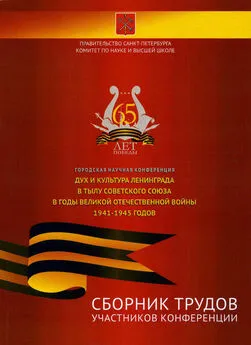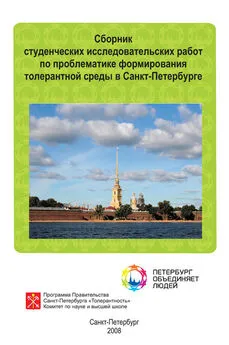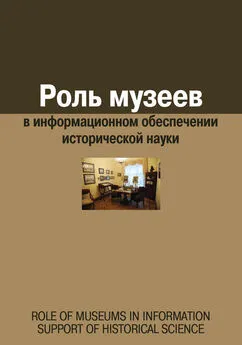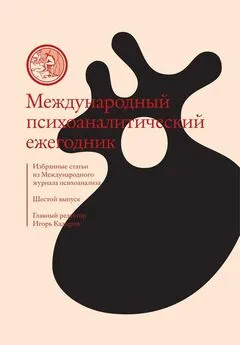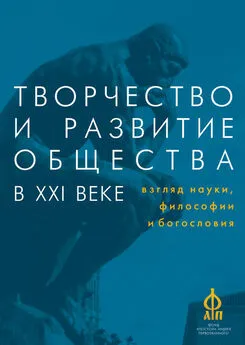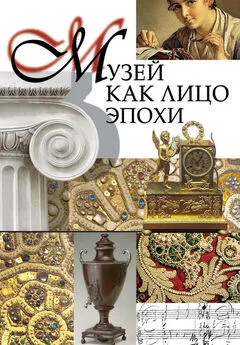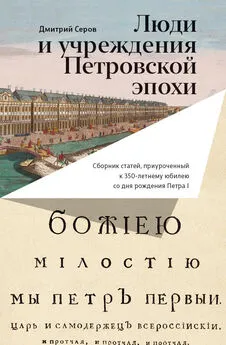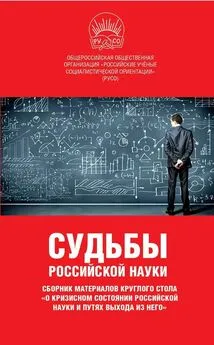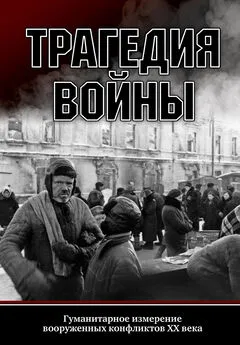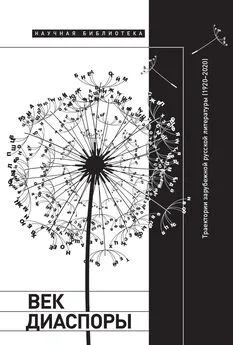Array Сборник статей - Нации и этничность в гуманитарных науках. Этнические, протонациональные и национальные нарративы. Формирование и репрезентация
- Название:Нации и этничность в гуманитарных науках. Этнические, протонациональные и национальные нарративы. Формирование и репрезентация
- Автор:
- Жанр:
- Издательство:Литагент Алетейя
- Год:2017
- Город:Санкт-Петербург
- ISBN:978-5-906860-98-9
- Рейтинг:
- Избранное:Добавить в избранное
-
Отзывы:
-
Ваша оценка:
Array Сборник статей - Нации и этничность в гуманитарных науках. Этнические, протонациональные и национальные нарративы. Формирование и репрезентация краткое содержание
Для историков, политологов, социологов, филологов и культурологов, а также интересующихся проблемами этничности и национализма.
Нации и этничность в гуманитарных науках. Этнические, протонациональные и национальные нарративы. Формирование и репрезентация - читать онлайн бесплатно ознакомительный отрывок
Интервал:
Закладка:
The views of history presented here were not necessarily believed in by anyone outside the court. Moreover, some 'German’ authors, that is, northern Germans/Saxons, do not mention these theoretical constructs [70] O. Engels. ‘Friedrich Barbarossa im Urteil seiner Zeitgenossen’, in O. Engels (ed.), Stauferstudien. Stuttgart, 1996. P. 225–245, atp. 243.
.
The most likely conclusion as to why this is so is that there was no single unified German identity. While Miiller-Mertens proved that the elites of the various peoples we consider German today did have a sense of German identity as early as the 1110s [71] E. Miiller-Mertens. Regnum Teutonicum. Berlin, 1970. S. 316–317, 329–341, 350, 376–377.
, it seems that every author related himself firstly to his locality and region, and only then to the larger regnum Teutonicum, regnum Francorum and impérium Romanům. As the Hohenstaufen court followed an agenda of conquest in Italy and the restoration of imperial rights in general, it was only logical that the courtly histories would take up more elements of Frankish and Roman histories and identities. In Italian eyes it was much easier when it came to defining the empire: it had always been and would always be only Roman [72] Otto Mořena. Xibellus’. P. 60–62; Anonymus. Carmen. P. 3, 8 et passim; Anonymus. ‘Civis Mediolanensis anonymi Narratio de Longobardie obpressione et subiectione’, in F.-J. Schmale (ed. and trans.), Italische Quellen iiber die Taten Kaiser Friedrichs I. in Italien und der Brief iiber den Kreuzzug Kaiser Friedrichs I. Darmstadt, 1986. S. 240–295, at s. 242.
. The opponents of the Hohenstaufen who appear as characters in the works of the Hohenstaufen supporters retain this distinction. For example, the Milanese are allowed to insult Barbarossa as merely a German in the Carmen de gestis [73] Anonymus. Carmen. P. 63–64, 67–70, 91.
.
To sum up, the imperial court espoused a German, Roman and Frankish identity. Roman because the impérium itselfwas Roman, Frankish because Charlemagne took the impérium away from the Greeks, and German because Otto the Great won the impérium from the Langobards, thereby excluding the French from Charlemagne’s legacy, the empire. While a German national identity was definitely in the background of this ideology, the imperial element is so much more present that it is more appropriate to conclude by saying that a Roman imperial identity existed at the court of the kings of Germany.
УДК 94(430).024
BE ДРАН СУДОВ СКИ. Магистрант, Центральный Европейский университет, Будапешт, Венгрия.
VEDRÁN SULOVSKY. МА student, Central European University, Budapest, Hungary. E-mail: vedransulovsky(o)hotmail.com
ГЕРМАНСКОЕ, РИМСКОЕ И ФРАНКСКОЕ: НАЦИОНАЛЬНЫЕ НАРРАТИВЫ ЭПОХИ РАННИХ ГОГЕНШТАУФЕНОВ (1138–1190) И ИХ ВЛИЯНИЕ НА ПОЛИТИКУ
В средневековой Европе происходили те же процессы, что и в современной: когда наблюдалось столкновение национальных идентичностей, многие из которых актуализировались вслед за великим потрясением, последовавшим за падением Советского Союза. Особенно интересным представляется пример Священной Римской Империи, многонационального государства, колебавшегося между франкской, римской и немецкий идентичностями. В то время как некоторые правители, например, Карл Великий или Оттон Великий, отдавали предпочтение франкской идентичности, другие – такие, как Людовик Благочестивый или Оттон III, полагали, что только римское самосознание должно иметь значимость.
Однако, начиная с 1000 г. это оспаривалось итальянскими писателями, что итоге привело к отказу от Римского и имперского характера политики при конфликте за инвеституру в 1070 гг. С тех пор термин Teutonicus вышел на авангард европейской дипломатии для умаления будущих императоров Римской империи. Постепенно и немецкие авторы начали прибегать к нему, хотя первоначально его использовали папистские литераторы. Ко времени Конрада III (1138–1152) немецкая идентичность уже повсеместно воспринималась германскими авторами, однако римская и франкская не были полностью забыты.
В течение последующих 50 лет различные национальные нарративы были косвенно усвоены разными людьми. Если Конрад III и Фридрих I (1152–1190) высказывали более франкские политические взгляды, то римская коммуна и папство имели различные римским идентичности. Восприятие правителей среди других итальянских авторов существенно разнилось: сторонники империи называли императора Римским, остальные – немецким варваром. Он не мог быть франком, ибо к этому времени это однозначно означало среди итальянцев – француз. У немецких авторов, тем не менее, сомнений не возникало: они были и немцкими, и франкскими, и даже иногда римскими, в зависимости от ситуации.
Ключевые слова: Германский; Франкский; Римский; Конрад III (1138–1190); Фридрих I (1152–1190); Рим; папство; идентичность; со-идентичность; соперничающая идентичность.
GERMAN, ROMAN AND FRANKISH: THE NATIONAL NARRATIVES OF THE EARLY HOHENSTAUFEN ERA (1138–1190) AND THEIR INFLUENCE ON HIGH POLITICS
Just as modern Europe has contested national identities, some of which have been challenged in the great upheaval following the fall of the Soviet Union, so did Medieval Europe have many similar phenomena. A particularly interesting case is the Holy Roman Empire, as it was multi-national state which wavered between the Frankish, Roman and German identities. While some rulers, for example Charlemagne and Otto the Great, thought the Frankish identity to be the most important one, other, such as Louis the Pious or Otto III, believed that the Roman identity should be only relevant one.
This, however, had been contested by Italian writers since 1000, eventually leading to a renunciation of the Empire’s Roman and Imperial character by Gregory VII in the 1070s. Since then the term Teutonicus rose to the forefront of European diplomacy as a disparagement of the would-be Roman emperors. German authors slowly started using the term themselves, even though it was primarily used by pro-Papal writers at first. By the time of Conrad III (1138–1152), however, the German identity was commonly accepted by German writers, although the Frankish and Roman identities had still not been completely forgotten.
During the following half century, differing national narratives were implicitly accepted by various persons. While Conrad III and Frederick I (1152–1190) exhibited a more Frankish-based political worldview, the Roman Commune and the Papacy embraced two very different Roman identities. Among other Italian authors the rulers were perceived in markedly different fashions: imperialists called the emperor a Roman, while others called him a German barbarian. A Frank he could not be, as by this point this meant only the French – in Italian eyes. For German authors, however, no doubt existed: they were both German and Frankish, and sometimes even Roman, depending on the situation.
Keywords: German; Frankish; Roman; Conrad III (1138–1190); Frederick I (1152–1190); Rome, the Papacy; identity; coidentity; contested identity.
СПИСОК ЛИТЕРАТУРЫ (REFERENCES)
1. Anonymus. Carmen de gestis Frederici I. imperatoris in Lombardia, ed. Irene Schmale-Ott. MGH SRG 62. Hannover: Hahnsche Buchhandlung,1965. 125 s.
2. Anonymus. „Civis Mediolanensis anonymi Narratio de Longobardie obpressione et subiectione", Italische Quellen Uber die Taten Kaiser Friedrichs L, Italien und der Brief Uber den KreuzzugKaiser Friedrichs I, hrsg. Franz-Josef Schmale. Darmstadt: Wissenschaftliche Buchgesellschaft, 1986. S. 240–295.
3. Dendorfer Jurgen. „Konrad III. und Byzanz“, in Die Staufer und Byzanz. hrsg. Karl.-Heinz. Ruefi, Góppingen: Gesellschaft fur Staufische Geschichte, 2013. S. 58–73.
4. Engels Odilo. „Friedrich Barbarossa im Urteil seiner Zeitgenossen“, in Stauferstudien: Beitrage zur Geschichte der Staufer im 12. Jahrhundert, hrsg. Odilo Engels. Sigmaringen: Thorbecke, 1996. S. 225–245.
5. Godfrey of Viterbo. „Pantheon”, in MGH SS 22, Historici Germaniae saec. XII, 2, hrsg. Georg Heinrich Pertz und Georg Waitz, Hannover: Hahn, 1872. S. 107–307.
6. Godfrey of Viterbo. „Speculum regum“, in MGH SS 22, Historici Germaniae saec. XII, 2, hrsg. Georg Heinrich Pertz und Georg Waitz, Hannover: Hahn, 1872. S. 21–93.
7. Górich Knut. Friedrich Barbarossa: Fine Biographie. Munchen: С. H. Beck, 2011. 782 s.
8. Górich Knut. „Friedrich Barbarossa und Byzanz", Die Staufer und Byzanz, hrsg. Karl.-Heinz. Ruefi, Góppingen: Gesellschaft fur Staufische Geschichte, 2013. S. 74–85.
9. Hausmann Friedrich. „Gottfried von Viterbo: Kapellan und Notár, Magister, Geschichtsschreiber und Dichter", Friedrich Barbarossa. Handlungsspielráume und Wirkungsweisen des staufischen Kaisers, hrsg. Alfred Haverkamp. Sigmaringen: J. Thorbecke, 1992. S. 603-21.
10. Mierow Charles, ed. and trans. The Deeds of Frederick Barbarossa. New York: W. W. Norton & Company, 1966. 366 p.
11. Miiller-Mertens Eckhard. Regnum Teutonicum. Berlin: Akademie-Verlag, 1970. 416 s.
12. Otto Mořena. „Ottonis Morenae eiusdemque continuatorum Libellus de rebus a Frederico imperatore gestis", Italische Quellen Uber die Taten Kaiser Friedrichs I. in Italien und der Brief uber den Kreuzzug Kaiser Friedrichs I, hrsg. Franz-Josef Schmale. Darmstadt: Wissenschaftliche Buchgesellschaft, 1986. S. 34-239.
13. Otto of Freising. Chronica sive historia de duabus civitatibus, hrsg. Adolf Hofmeister, MGH SRG, Usum scholarum separatim editi 45. Hannoverae et Lipsiae: impensis bibliopolii Hahniani, 1912. 577 s.
14. Otto of Freising. „Ottonis Gesta Friderici I. Imperatori", MGH SRG, Usum scholarum separatim editi 46, Ottonis et Rahewini Gesta Friderici I. Imperatoris, hrsg. Georg Waitz und Bernhard von Simson. Hannoverae et Lipsiae: impensis bibliopolii Hahniani 1912. 385 s. P. 1–161.
Читать дальшеИнтервал:
Закладка:

